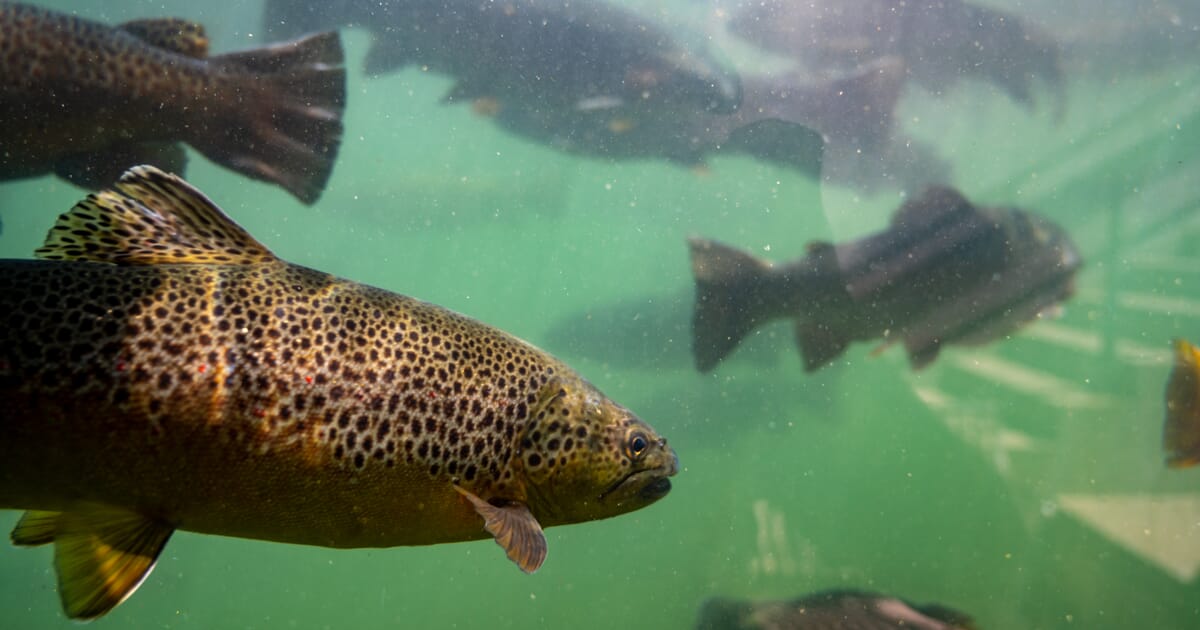
Researchers from UC Santa Cruz’s ecological aquaculture lab won a three-year, $1 million grant from the Agriculture and Food Research Initiative at the USDA National Institute of Food and Agriculture. This funding will support collaborative research to develop, test, and evaluate new low-polluting fish feed formulas for farm-raised rainbow trout.
Associate Research Professor of Environmental Studies Pallab Sarker will lead this work alongside Environmental Studies Professor Anne Kapuscinski and Luke Gardner, a California Sea Grant extension specialist affiliated with UC San Diego. The team will use a marine microalga as an ingredient in their fish feed, and the resulting experimental formulas will be field-tested at working trout farms in California.
The goal is to create an environmentally sustainable and economically viable new feed option that maximises fish growth while limiting the potential for water pollution during the fish farming process.
“Redesigning the composition of aquaculture feed has been a key leverage point for addressing nutrient pollution,” Sarker explained. “Low-pollution aquaculture feeds help to conserve natural ecosystems and provide clean water.”
The UC Santa Cruz team hopes their work will help to increase the variety and quality of low-polluting feed options available to fish farmers.
First, researchers will experiment with different methods for processing microalgal ingredients to make them as digestible as possible for rainbow trout. Next, they’ll determine the ideal amount of microalgae that can be substituted for fish-based ingredients. Then, they’ll develop low-polluting diets and determine both their effects on trout growth and their potential for minimising water pollution from resulting trout waste.
These initial steps will take place in the aquaculture research lab at the UCSC Farm, but thanks to the partnership with California Sea Grant, the team will also have a chance to evaluate the feed’s performance in the real world through trials on fish farms. Anne Kapuscinski and Luke Gardner will co-lead this collaboration with a small group of trout farms in California. They’ll also recruit other leaders from across the aquaculture industry to learn more about low-polluting diets and build commercial interest.
“We’re thrilled that this grant allows us to test our new diets on commercial trout farms,” Kapuscinski said. “The proof is in the pudding—or in this case, on the fish farm—so I think this will go a long way toward convincing more farmers and aquafeed manufacturers to adopt low-polluting diets.”
Ultimately, as aquaculture grows to meet global protein needs, the team hopes continued research will ensure that the industry’s sustainability keeps growing alongside it.
“Aquaculture has gotten a bad reputation with American consumers, and this slows down the progress of aquaculture, especially for species like farmed salmon or farmed trout where their required feeding has a higher environmental impact,” Sarker said. “But that impact will likely continue to be reduced through research and innovations that find better ways to feed fish and help to encourage the best, most responsible practices in aquaculture.”
"ingredients" - Google News
July 05, 2021 at 04:53PM
https://ift.tt/3dO1nyG
Research on alternative aquafeed ingredients hopes to minimise nutrient pollution from rainbow trout - The Fish Site
"ingredients" - Google News
https://ift.tt/2Qstat1
Shoes Man Tutorial
Pos News Update
Meme Update
Korean Entertainment News
Japan News Update
Bagikan Berita Ini














0 Response to "Research on alternative aquafeed ingredients hopes to minimise nutrient pollution from rainbow trout - The Fish Site"
Post a Comment